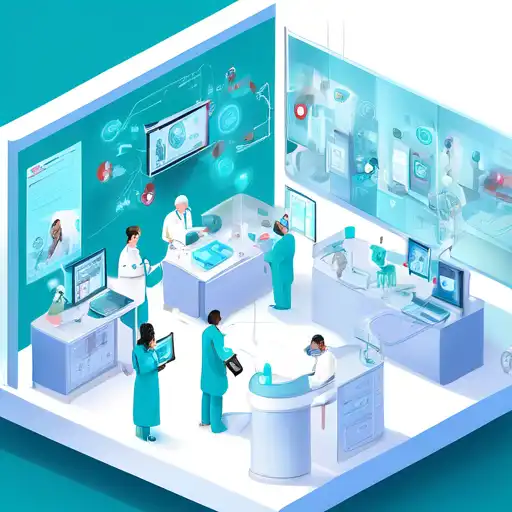The Transformative Impact of IoT on Modern Healthcare
The Internet of Things (IoT) is revolutionizing healthcare services by enabling smarter, more efficient, and personalized patient care. This technological advancement is not just a trend but a significant shift in how healthcare providers deliver services, ensuring better outcomes for patients worldwide.
Enhancing Patient Monitoring
IoT devices have made it possible to monitor patients in real-time, outside of traditional clinical settings. Wearable devices can track vital signs such as heart rate, blood pressure, and oxygen levels, sending alerts to healthcare providers if any abnormalities are detected. This continuous monitoring can lead to early detection of potential health issues, significantly improving patient outcomes.
Improving Medication Management
Smart pill bottles and medication dispensers are examples of how IoT is improving medication adherence. These devices remind patients to take their medication on time and can notify caregivers if a dose is missed. This technology is particularly beneficial for elderly patients or those with chronic conditions, ensuring they adhere to their treatment plans.
Streamlining Hospital Operations
IoT is also transforming hospital operations by optimizing resource allocation and reducing wait times. Smart beds can detect when they are occupied and alert staff when they need to be cleaned or maintained. Similarly, IoT-enabled asset tracking systems can locate medical equipment quickly, saving time and improving efficiency.
Facilitating Remote Consultations
With IoT, healthcare providers can offer remote consultations, making healthcare more accessible to people in remote or underserved areas. Patients can share their health data in real-time during virtual visits, allowing doctors to make informed decisions without the need for physical examinations.
Challenges and Considerations
Despite its benefits, the integration of IoT in healthcare comes with challenges, including data security and privacy concerns. Ensuring the confidentiality and integrity of patient data is paramount, requiring robust cybersecurity measures and compliance with regulations such as HIPAA.
In conclusion, IoT is playing a pivotal role in transforming healthcare services, making them more efficient, accessible, and personalized. As technology continues to evolve, the potential for IoT in healthcare is boundless, promising even greater advancements in patient care and operational efficiency.
For more insights into how technology is shaping the future of healthcare, explore our articles on digital transformation in healthcare and the future of patient care.
